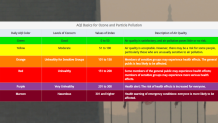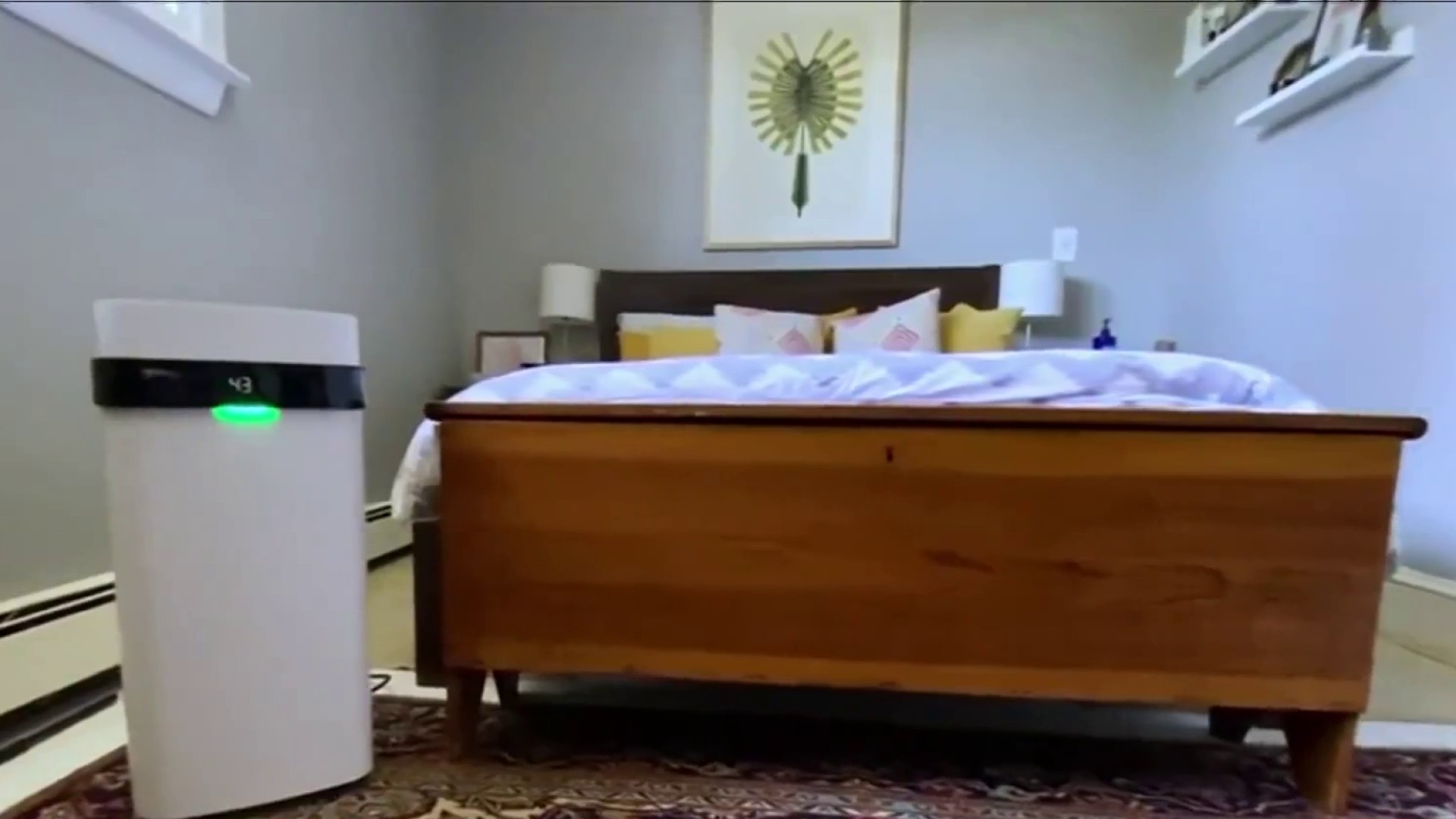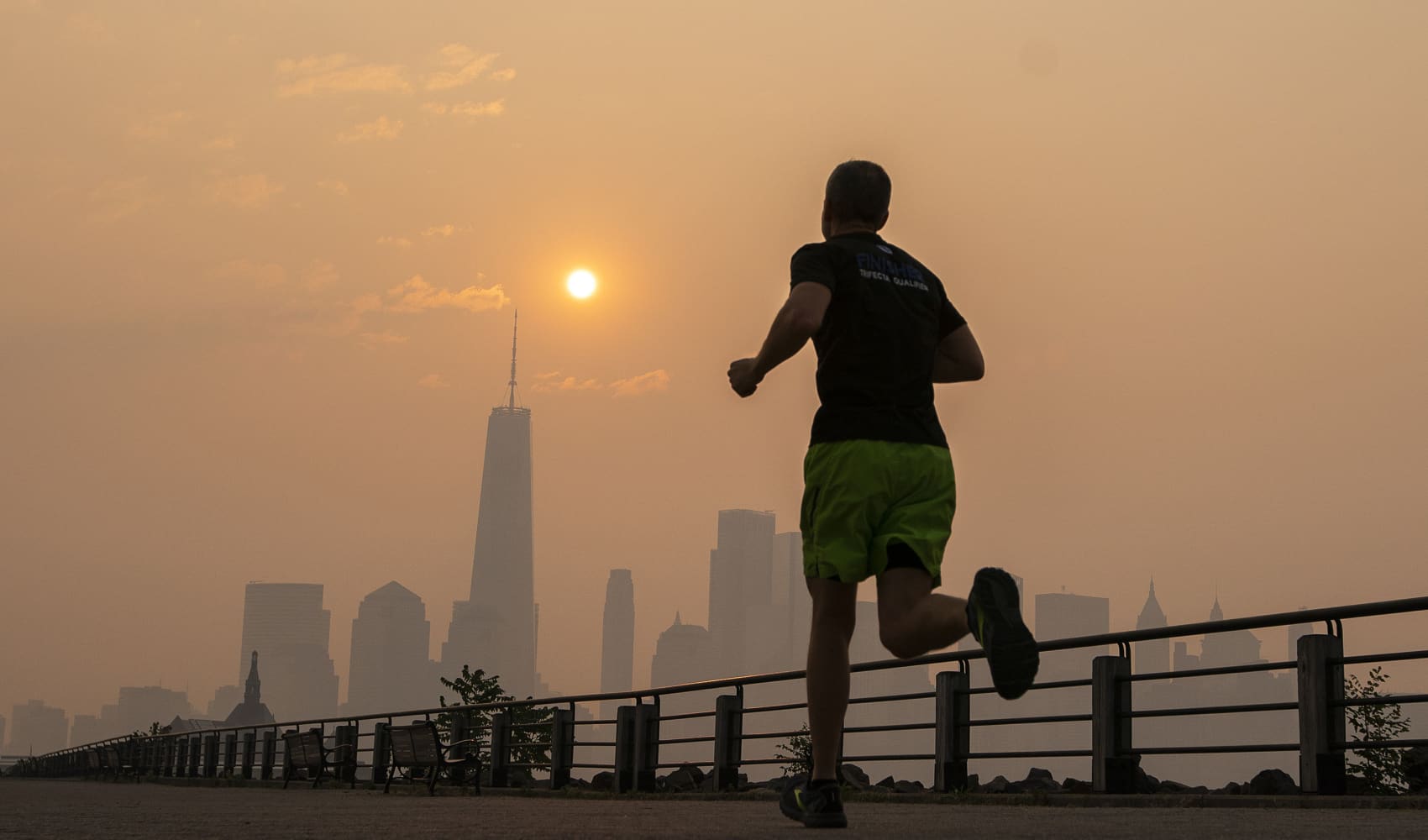Smoke, dust, dirt, soot and salt in the air, plus certain chemicals in the air including ozone, can reach levels that are harmful to health.
Those most vulnerable to air pollution include people with chronic health issues, children and the elderly, but bad pollution can affect healthy people, too. When the air quality is poor, experts advise staying inside, especially during strenuous activity like exercise.
Here's how to check the air quality today in Washington, D.C., Maryland and Virginia, plus tips on staying safe.
What's the air quality where I live today?
We've got the news you need to know to start your day. Sign up for the First & 4Most morning newsletter — delivered to your inbox daily. >Sign up here.
You can check the air quality in your part of the D.C. area using the interactive map below.
The data in the map refreshes itself daily.
For hourly updates based on zip code or city, you can also go to AirNow.gov.
What do the different air quality codes mean?
The Environmental Protection Agency monitors how polluted or clear the air is with the Air Quality Index, or AQI. The scale runs from 0 to 500, and the higher the AQI, the more pollution there is in the air.
Each range on the AQI is given a color. Green is the zero to 50 part of the range, and qualifies as "Good" air quality; yellow is 51 to 100, and qualifies as "Moderate" air.
Code orange ranges from 101 to 150, and means the air is unhealthy for sensitive groups, like children and elderly adults, or people with asthma and other chronic respiratory conditions.
A code red, which ranges from 151 to 200, is unhealthy for everyone.
Code purple means everyone is at greater risk of health impacts. Once you get to maroon, which is 301 and higher, the effects on everyone's health reach emergency levels, and people are more likely to be sickened.
See the chart below for the full range of the AQI.

How could bad air quality affect my health?
The effects of air pollution on the human body vary based on factors including the type of pollution, the length of exposure, health care access and individual health, according to the American Lung Association.
Short-term exposure to air pollution is linked to reduced lung function, asthma, cardiac problems, emergency department visits, and hospital admissions, according to the National Institute of Environmental Health Sciences, a division of the National Institutes of Health.
Over the long term, pollution is linked to serious diseases including cancer, lung disease and heart disease, the NIEHS said.
How can I stay safe during air quality alerts?
The best way to protect yourself from the negative health effects of wildfire smoke is to avoid breathing it in – which means staying inside as much as possible.
When air quality is poor, for example, it's a good idea to hit the gym instead if you typically work out outside. Air quality alert days are also not the best times to bring your kids to the park or the pool, especially if they have allergies, asthma, or chronic health issues.
Pets should also stay inside when the air is unhealthy.
“Other mammals, they suffer from many of the same lung conditions that humans do,” Dr. Purvi Parikh, an allergist and immunologist at the Allergy & Asthma Network, told NBC News.
If the air quality reaches code red or code purple levels, it's a good idea to use the "recirculate" air button in your car, Storm Team4 Meteorologist Chuck Bell said.
"This keeps the outside air OUT and keeps sending the inside air through the filters," he said.
If you need extra protection from smoky conditions, the Centers for Disease Control recommends finding a room you can seal off from outside air. Consider a portable air cleaner or a filter to keep that room clean.
There are ways to create an air filter yourself using a box fan and furnace filters you can purchase at most grocery stores.
Respirators, like N95s, can help reduce your smoke exposure if you have to be outside in poor air quality conditions, according to the CDC.
The Metropolitan Washington Council of Governments (COG) suggests trying to cut your own contribution to pollutants during poor air quality days. Its suggestions are:
- Avoid lawn mowing or use an electric mower.
- Use gas or electric grills instead of charcoal.
- Fill your vehicles' gas tank after sunset.
- Take transit, carpool, or work from home.
- Turn off lights and electronics when not in use and follow tips from your electric utility about how to use less electricity to cool your home.
News4 sends breaking news stories by email. Go here to sign up to get breaking news alerts in your inbox.



